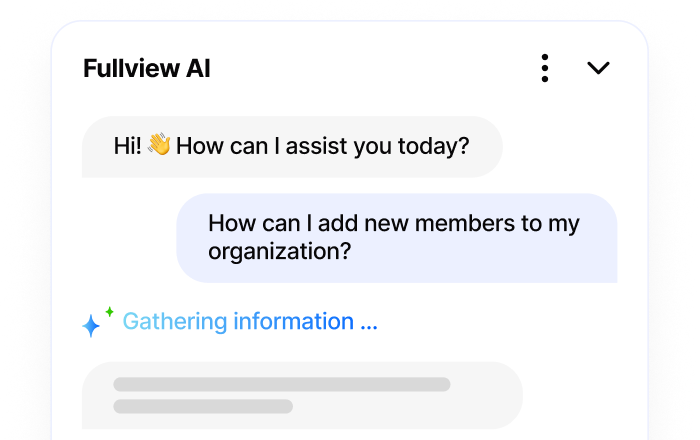In today's competitive marketplace, customer service has emerged as a key differentiator. A company that prioritizes its customers not only retains existing ones but also attracts new ones. In fact, 81% of people claim that receiving good customer service makes them more likely to make another purchase.
However, as the world continues to evolve, so do the expectations of customers. Companies must adapt and stay ahead of these changing trends in order to provide exceptional customer service. Here are seven key trends that businesses need to pay attention to in 2024 to ensure that they are meeting their customer's needs and expectations.
Personalization

In the ever-evolving business landscape, personalization is rapidly becoming a cornerstone of excellent customer service. The era of one-size-fits-all approaches is fading, replaced by the expectation of personalized experiences that make customers feel seen, understood, and valued.
Customers today crave interactions that are tailored to their specific needs and preferences. They want businesses to know who they are, understand their history with the company, and provide relevant, timely support. This shift is largely driven by advancements in technology that allow companies to gather, analyze, and act on customer data in real-time such as session replays, console logs, and product analytics platforms.
Personalization in customer service can range from using a customer's name in communications and remembering their past purchases to providing recommendations based on their browsing history. It's about making each customer feel like they're not just another number but rather a valued part of the company.
According to a study by McKinsey, 71% of consumers are more likely to make a purchase when brands offer personalized experiences. This statistic underscores the importance of personalization in customer service. As we move forward, businesses that prioritize and effectively implement personalization strategies will set themselves apart, fostering loyalty and driving customer retention in an increasingly competitive marketplace.
Omnichannel support
Omnichannel support is a multi-channel approach to customer service that integrates different methods of communication, such as email, social media, live chat, and phone, into one unified customer interface. It ensures a seamless experience for the customer as they switch between channels, providing consistent, personalized service. This approach facilitates quicker, more efficient problem-solving and enhances customer satisfaction.
In today's fast-paced world, customers expect immediate and effortless communication with businesses. They want to be able to reach out for support using their preferred method of communication, whether it's through social media or traditional channels like email or phone. Companies must provide a seamless experience across all these channels in order to meet customer expectations.
A brand's purchase rate increases by 287% when at least three channels are used in their retail strategies, and 86% of customers are willing to pay more money if it means a better customer experience. These statistics show the potential impact that omnichannel support can have on both customer satisfaction and revenue.
As technology continues to advance, businesses must evolve to meet their customers where they are, ensuring a consistent and seamless experience across multiple channels.
Reimagined brand relationships
Customers don't always have a choice when it comes to how often they hear from the brands they interact with. They are bombarded with marketing messages, promotions, and emails on a daily basis. In 2024, the relationship between brands and their customers will go beyond just transactions.
Companies that prioritize building authentic relationships with their customers will stand out from the competition. This involves listening to customer feedback, acting on it, and showing genuine care for their needs and concerns.
Additionally, this also means allowing customers to have complete control of how they engage with a brand. Whether it's through email, social media, or in-person interactions, customers should have the freedom to choose how and when they interact with a business.
By fostering genuine relationships and giving customers control, businesses can create a loyal customer base that will continue to support them well into the future.
Self-service and predictive support
The future of customer service is being shaped by two significant trends: self-service and predictive support. These trends are transforming the way businesses interact with their customers, offering more seamless, personalized experiences.
Self-service options are gaining popularity as they empower customers to find solutions on their own without the need for a representative. Proactive customer service, like self-service, not only promotes customer satisfaction but also improves agent productivity. It offers a convenient, efficient, and tailored support experience that meets modern customer expectations.
Moreover, community-based support systems are also on the rise. These platforms allow customers to engage with other users to solve common issues, fostering a sense of community and shared understanding. This approach can streamline the resolution process and decrease the workload on customer service representatives.
On the other hand, predictive support takes customer service a step further. Leveraging data-led trends and advanced analytics, businesses can anticipate customer needs before they arise, enhancing the customer experience significantly. This proactive, upstream approach to customer operations can lead to better outcomes.
Empathetic support agents
The future of customer service also includes a stronger focus on empathy. As technology continues to automate many tasks, the role of human representatives will shift toward providing empathetic support and understanding to customers.
Empathy is the ability to understand and share the feelings of others. In customer service, this means agents must be able to listen actively, show genuine concern for customers' problems, and provide appropriate solutions. While this has always been a crucial aspect of customer service, it will become even more important as customers continue to seek authentic and personal interactions with businesses.
Hiring and training agents who possess high levels of empathy will be crucial for businesses looking to excel in customer service. This includes providing continuous development opportunities for agents to enhance their emotional intelligence and problem-solving skills.
For example, role-playing scenarios and customer empathy training can help agents develop the necessary skills to provide empathetic support. Not only will this improve the customer experience, but it will also lead to higher job satisfaction and retention rates for agents.
Better feedback loops
In the future, businesses will be able to gather more accurate and real-time feedback from customers, allowing them to make data-driven decisions for improvement. With advanced technology, companies can monitor customer interactions in real-time and analyze trends to identify areas of improvement.
Additionally, with the rise of AI-powered chatbots and virtual assistants, businesses can gather feedback at every interaction point throughout a customer's journey. This allows for more personalized and tailored support, leading to higher levels of customer satisfaction.
Moreover, businesses can also use this feedback to anticipate future needs and proactively address any potential issues before they arise. By continuously improving based on customer feedback, businesses can stay ahead of the curve and provide exceptional service.
Tailored and proactive support experiences

The future of customer service lies in providing tailored and proactive support experiences. As technology advances, the need for a more personalized approach to customer service becomes apparent. While chatbots and AI can handle simple level 1 support requests efficiently, customers still crave human interaction, especially when it comes to complex level 2 and 3 support issues. So, what tools should your company rely on?
One incredible technology that has been making waves in the realm of customer service is cobrowsing. This tool enables customer support agents to initiate a one-click screen control call with users to co browse with them, allowing them to solve problems directly on the user's screen. This hands-on, proactive approach not only resolves technical support issues faster but also personalizes onboarding experiences. It provides an opportunity for gathering qualitative customer feedback and demoing new features effectively. Cobrowsing eliminates friction as customers no longer have to struggle with implementing solutions recommended over chat or email. They appreciate the individual attention and efficiency that cobrowsing offers.
Another powerful tool in the arsenal of customer support is session replays. Companies can auto-record user sessions within their app and proactively monitor them to identify users who may need assistance. Session replays provide full context on a user's issue even before initiating a conversation. By watching the user's in-app activity, including where they clicked, what pages they visited, signs of frustration like rage-clicking, and any encountered bugs or errors, support teams can understand the user's experience better.
The combination of cobrowsing and session replays can significantly transform customer support experiences. It allows customer support teams to craft proactive and hyper-personalized customer experiences. When used effectively, these tools can increase customer satisfaction (CSAT), loyalty, and revenue, while decreasing churn rates.
Wrapping It Up
In conclusion, the future of customer service is not just about resolving customer queries. It's about anticipating those queries, understanding the customer's journey, and providing a personalized solution even before the customer realizes there's a problem. It's about being proactive rather than reactive.
And with technologies like cobrowsing and session replays, this proactive and personalized approach is not just a possibility, but a reality. As we move forward, companies that embrace these customer service trends and prioritize customer experience will thrive in the ever-evolving landscape of customer service.


.png)





.webp)
